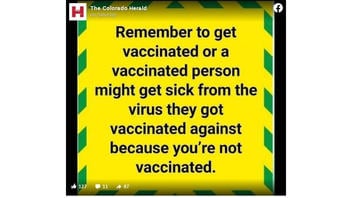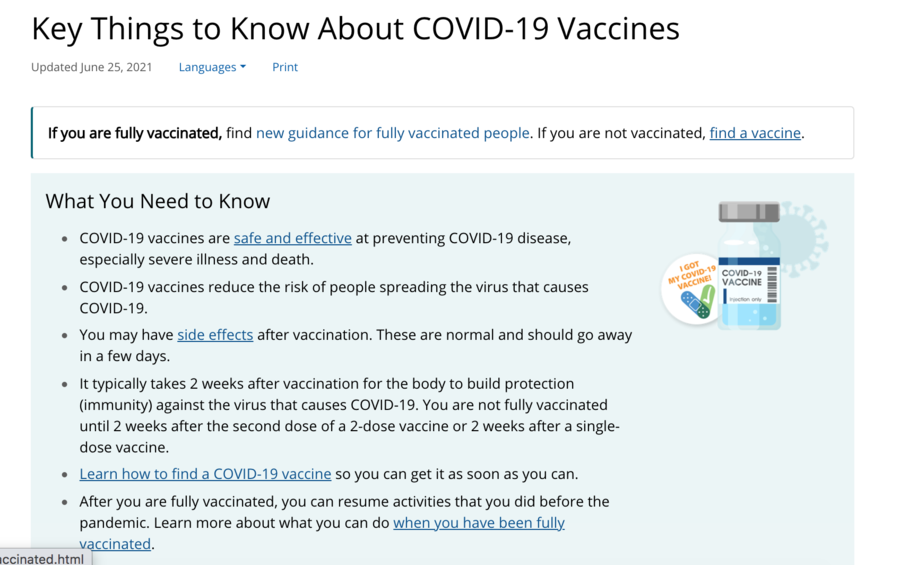
Do people need to "remember to get vaccinated or a vaccinated person might get sick from the virus they got vaccinated against because you're not vaccinated"? No, that's not true. Mocking public health advice, this meme leaves out the primary purposes of vaccination:
- Preventing you from becoming infected;
- Preventing you from infecting others.
Both unvaccinated and (to a far lesser degree) vaccinated people around you are at risk when you host the virus. While COVID-19 vaccines have been proven highly effective, it is still possible for a vaccinated person to be re-infected, although the illness is typically far less severe.
The point of declaring a pandemic and campaigning for as many people as possible to get vaccinated is to reduce suffering and deaths of those who are exposed and infected, and to slow the spread by reducing the number of potential virus hosts. That's how viruses die out: either by killing all potential hosts or by being denied hosts. The point of this meme works against that by encouraging people to make themselves available to the virus as hosts, which means more serious disease and more spread of the disease.
The claim appeared in numerous memes, including this version (archived here) published by The Colorado Herald Facebook page on July 10, 2021. It opens:
Remember to get vaccinated or a vaccinated person might get sick from the virus they got vaccinated against because you're not vaccinated.
This is what the post looked like on Facebook at the time of writing:
(Source: Facebook screenshot taken on Wed Jul 14 19:43:50 2021 UTC)
The circular logic in the sentence does not fully or accurately reflect the reasoning behind the COVID-19 vaccination campaign.
The CDC guidelines within "Key Things to Know About COVID-19 Vaccines," updated on June 25, 2021, explain why getting a COVID-19 vaccine helps reduce the virus spread: "COVID-19 vaccines are safe and effective at preventing COVID-19 disease, especially severe illness and death. COVID-19 vaccines reduce the risk of people spreading the virus that causes COVID-19":
Let's break down the meme:
Remember to get vaccinated: The CDC recommends getting a COVID-19 vaccine because they are "safe and effective" at preventing a person from contracting the COVID-19 disease, which as of July 14, 2021, had killed about 623,799 people in the U.S., 4 million worldwide, as it is highly infectious, spreads on the air and has followed travelers from continent to continent.
Or a vaccinated person might get sick from the virus they got vaccinated against because you're not vaccinated: An unvaccinated person can easily spread COVID-19, even to vaccinated people. If a vaccinated person does get what is called a "vaccine breakthrough" case of COVID-19, the shot has lowered their risk of severe illness or death from the infection, which may be small consolation if you're the vaccinated person infected by an unvaccinated neighbor. The CDC is still studying cases of vaccinated people who are infected but asymptomatic, which means a vaccinated person could infect you if you refuse the vaccine.
A person who has received a COVID-19 vaccine has less chance of spreading the virus to anyone, vaccinated or unvaccinated. The vaccine provides a layer of protection against unvaccinated people spreading the virus. This slows down the virus infection rate.



















